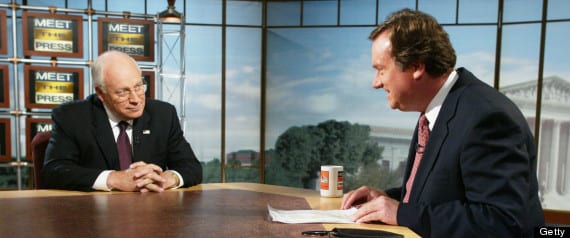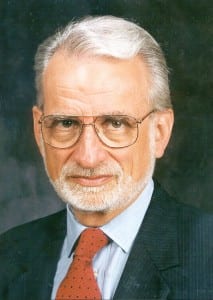Why “Torture Doesn’t Work”
This is one of Trump’s few unwitting saving graces (or disgraces, depending on who’s doing the observing), and a reason why he’s regarded by the deep state as a threat to the status quo, a concern augmented by their suspicion, despite Trump’s recent ostensible conversion to rabid neocon doctrine, that the Donald remains deep inside a non-believer in constant wars, let alone an apocalyptic one with the Russians, as his belligerent advisers continually seek to arrange. In any case, with Haspel in the news, and Pompeo thumping his chest and promising to make the CIA an still meaner outfit than it is, the question of torture itself—or “enhanced interrogations,” as the compliant media has largely agreed to call it—has also returned to the political consciousness. Does it work? And is it moral to judge its use by solely utilitarian values? Or is torture just an intimidation tool? In this piece, first published in December of 2014, our senior editor provides some background to the issue.— PG
For The Greanville Post and The Planetary Movement.
Steven Jonas, MD, MPH
This is a repost.
First iteration 19 Dec 2014
torture and the CIA. It is entitled: “Panel Faults C.I.A. Over Brutality and Deceit in Terrorism Interrogations.” But even just the Executive Summary presents a huge amount of horrifying detail about the program. (I need not detail it here; it and a huge amount of commentary has already appeared in The Times and many other news sources, print, electronic and other. A particularly useful historical analysis has appeared on The Greanville Post.)
It happens that a good deal of the information contained in the report has been known, in relative bits and pieces, for quite some time. What the Senate Committee has done is assemble a huge amount of material in one place, and then put their imprimatur on the information, which it has been collecting in sometimes gruesome detail over the past six years. The most important conclusion to come away with in examining the Report is the Senate Intelligence Committee’s major finding about the CIA’s torture program: that is was bad because it didn’t work. And they produced huge mountains of evidence to support that claim.
No so-called civilized nation can claim that torture is permissible because “it works.”
The Republicans, who for some time refused to participate in the work of the Committee have reacted in horror, not at the details of the torture itself and the catalog of CIA cover-ups, incompetence, disorganization, amateurism, and what-have-you, but at the fact that they have all been made public. Most importantly, despite the fact that the Senate Committee assembled an overwhelming amount of evidence, and despite the fact that the Republicans did not avail themselves of it, they claimed that torture does work, in intelligence gathering, and then on, as they so often do, to try to change the subject. Consider: “Many Republicans have said that the report is an attempt to smear both the C.I.A. and the Bush White House, and that the report cherry-picked information to support a claim that the C.I.A.’s detention program yielded no valuable information. Former C.I.A. officials quickly began a well-prepared and vigorous public campaign to dispute the report’s findings.”

The late Tim Russert, “star anchor” for the ponderous Meet the Press (NBC), specialized on interviewing exclusively establishment figures and reactionaries, thereby acting as a thinly-veiled propaganda shill. Same kind of joke is seen on Bob Schieffer’s Face the Nation, same parade of insiders and safely vetted voices. These media frauds never heard of a dissenting voice worth presenting to the public, although such people are not hard to find.
Of course the torturer-in-chief, Dick Cheney, went bananas over the report’s release. He argues both that torture works and then (oops!) that what was done wasn’t torture anyway. So he, and all of his GOP and other cheerleaders, first try to deny reality (just as they do on so many issues, from global warming to racism) and then if that doesn’t work, get the argument onto definitions.
Cheney has also famously said that whatever what was done is or isn’t torture, a), he would authorize it all over again, and b) even if innocent people were picked up and put into the program, that really didn’t matter in the pursuit of its overall goals. Interestingly enough, I did not hear of anyone asking him, if what the Senate Committee defined as torture wasn’t, what would he define as torture and would he authorize its use if he thought circumstances warranted that intervention.
Demonstrating his complete lack of knowledge of human anatomy and physiology Cheney even claimed that “rectal feeding” was OK, if done for “medical reasons.” Note to the former Vice-President: the colon a) is not a digestive organ, b) as a physician for over 50 years, I have never heard forced ramming of food into the rectum described as a medical therapy. Of course if Yoo and Bybee (who defined what the CIA was doing as not torture) were quack physicians instead of quack lawyers they might well have defined “rectal feeding” as a “medical therapy.” Andy Borowitz tells us (WARNING, satire) that to, in his terms, properly deal with the subject, Cheney has even called for an international ban on the issuance of reports on the use of torture. Nevertheless, despite what Cheney and his fellow cheer-leaders have said, we know that the CIA has done some very bad things (bad, that is, if you think that torture is bad), fully justified by the Bush Administration. Indeed, even though the Committee said that it wasn’t, we know, as directly confirmed by Cheney himself, that the program was fully authorized by the Bush Administration.
However, and it’s a big however, the Senate Committee’s whole premise is that: the program was bad because it didn’t work. Which raises the question: would they have concluded that torture was OK if it had produced useful intelligence? Uh-oh and Oh my. If Cheney et al were/are right about the utility of torture, at least as practiced by the CIA, then the Committee’s whole argument against it collapses in a heap. Indeed by focusing primarily on “torture doesn’t work” for its primary criticism of the program, the Senate Intelligence Committee has let the Republicans and the numerous complicit corporate Democrats and the Right-wing generally off the hook. For they can simply come back, as they are, as noted, doing vociferously, saying “yes it does.”
is clearly prohibited by various Federal statutes. But the central issue here is the violation of Constitutional law. The use of torture by any signatory to them is found in the Geneva Conventions and the UN Convention Against Torture. The United States is a party to both, and both are signed and ratified U.S. international treaties. But before considering the Constitutional question, let us consider just what “torture” is, in anybody’s terms other than Cheney’s et al.
The authors of the Geneva Conventions just assumed that everyone “knows” what torture is; they didn’t bother to define it any detail. The UN Convention defines it in general terms as “Any act by which severe pain or suffering, whether physical or mental, is intentionally inflicted on a person for such purposes as obtaining from him or a third person information or a confession . . .” By exclusion, the U.S. Army Field Manual is rather explicit about it. The Bush Administration’s quack law firm, Bybee and Yoo, tried to define their way out of the quagmire, that “finding” being what Cheney (who probably dictated it to them, or perhaps it was his hatchet man Addington) falls back on. But no one outside of themselves and the US Right would agree that what was done to numbers of prisoners of the US was not torture. And the Senate Committee has certainly concluded that it was and uses the term “torture” over-and-over again.
But then comes the truly inconvenient truth that the use of torture by US authorities is simply unconstitutional. Under article VI of the U.S. Constitution, as treaties signed and ratified by the U.S. government, both Conventions are part of “the supreme law of the land and [further] the judges of every state shall be bound by them.” This, and its illegality under various U.S. statutes and Codes, are the only arguments that one can make against the use of torture by US agencies that can withstand the “but it works” argument, even if the latter were true. Thus, torture both doesn’t work and is unconstitutional as well as illegal.
The CIA surely knew the first: they haven’t been able to come up with even one provable example of its effectiveness. (Further, it should be noted that during the Clinton Administration two attempted terrorist attacks that would have produce much larger death tolls even than 9/11 were thwarted, presumably through the use of conventional intelligence/interrogation techniques. The first was the 1998 “25 airliners” plot and the second was “Millennium Bomb Plot” against Los Angeles International Airport. This was done apparently without using one torturous twitch.) But the bottom line is that the use of torture by any U.S. agency is unconstitutional, and that, not “it doesn’t work,” is where the argument against such use should start. Indeed, “it doesn’t work” just doesn’t work in the battle to ban the use of torture by the US government, which, as it happens, may well be renewed if the next President is a Republican.
 STEVEN JONAS, Senior Editor, Duopoly Watch • Steven Jonas, MD, MPH is a retired Professor of Preventive Medicine at Stony Brook University (NY) and author/co-author/editor/co-editor of 36 books. He has also published numerous academic papers, and publications on a wide variety of topics in the lay press, ranging from politics to the sport of triathlon. In his academic career Dr. Jonas has received a number of honors and awards. He is a Past President of the Association of Teachers of Preventive Medicine (the predecessor of the APTR), and a past member of the New York State Board for Medicine.
STEVEN JONAS, Senior Editor, Duopoly Watch • Steven Jonas, MD, MPH is a retired Professor of Preventive Medicine at Stony Brook University (NY) and author/co-author/editor/co-editor of 36 books. He has also published numerous academic papers, and publications on a wide variety of topics in the lay press, ranging from politics to the sport of triathlon. In his academic career Dr. Jonas has received a number of honors and awards. He is a Past President of the Association of Teachers of Preventive Medicine (the predecessor of the APTR), and a past member of the New York State Board for Medicine.


